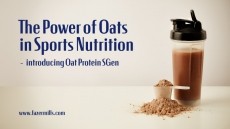EFSA explains soy protein claim rejection

Responding to industry and academic feedback to the European Commission in the 30-day window after the rejection, Dr Juliane Kleiner, the unit head of EFSA’s Panel on Dietetic Products, Nutrition and Allergies (NDA), wrote the exclusion of soy isoflavones and other constituents from the definition of soy should not have come as a surprise to the industry.
“EFSA wishes to point out that in its correspondence with the applicant (three ‘clock-stops’ were applied) particular care was taken to clarify the food constituent that is the subject of the proposed claim and the studies which might be considered pertinent for the substantiation,” Dr Kleiner wrote.
“In response to a request from EFSA the applicant confirmed that soy protein (i.e. the protein component of soy foods and soy ingredients) was the food constituent proposed for the claim. Accordingly, the Panel considered only those studies identified by the applicant as pertinent studies in which the effect of soy protein alone on blood cholesterol could be distinguished from possible effects of substances other than soy protein (e.g isoflavones, fatty acids, fibre).”
The three groups – the European Vegetable Protein Federation (EUVEPRO), the European Natural Soyfoods Manufacturers Association (ENSA), the UK Soy Protein Association (SPA) – along with several prominent protein researchers had submitted comments to the EC expressing similar reservations about the NDA’s tight protein definition.
Their sentiment was summed up by James Anderson, MD, Professor Emeritus, Medicine and Clinical Nutrition, at the University of Kentucky, who wrote:
“It appears that [EFSA] defines soy protein in a manner that is not consistent with the form present in most commercially available soy food, such as tofu or isolated soy protein. Therefore from the consumer’s point of view, EFSA’s definition is not helpful as it does not address the health benefit of soy protein as it exists in foods.”
Academics from the University of Milan, the University of Guelph, Arkansas University and Penn State University also submitted comments.
The three groups involved in the application stressed that the opinion had focused on alcohol-washed soy protein that was not used in the food supply.
“ENSA, SPA, and EUVEPRO are surprised and concerned to see that the EFSA has assessed a component which is actually not present in a food product and which was never intended to be the subject of the claim.”
The article 14 opinion can be found here.















